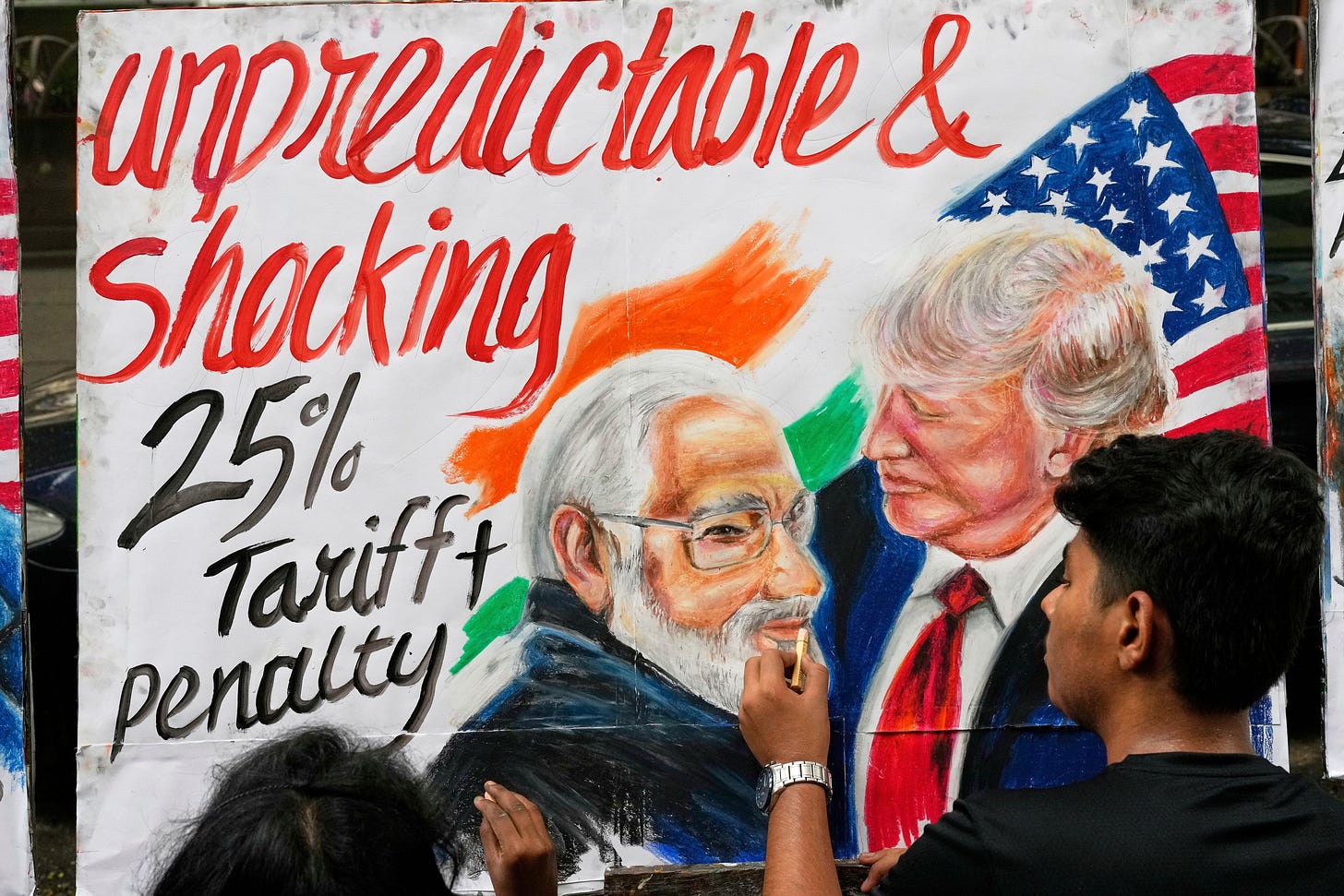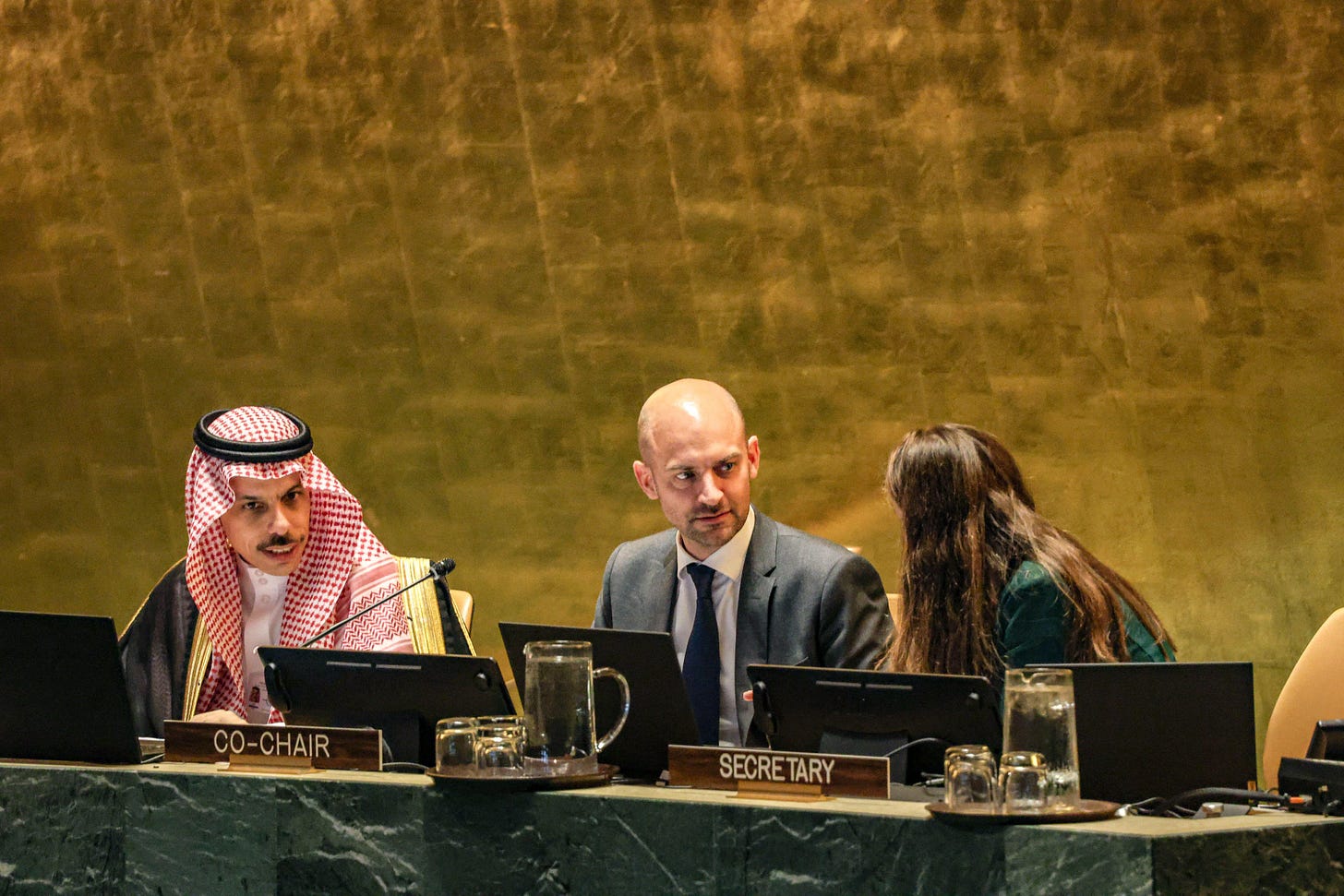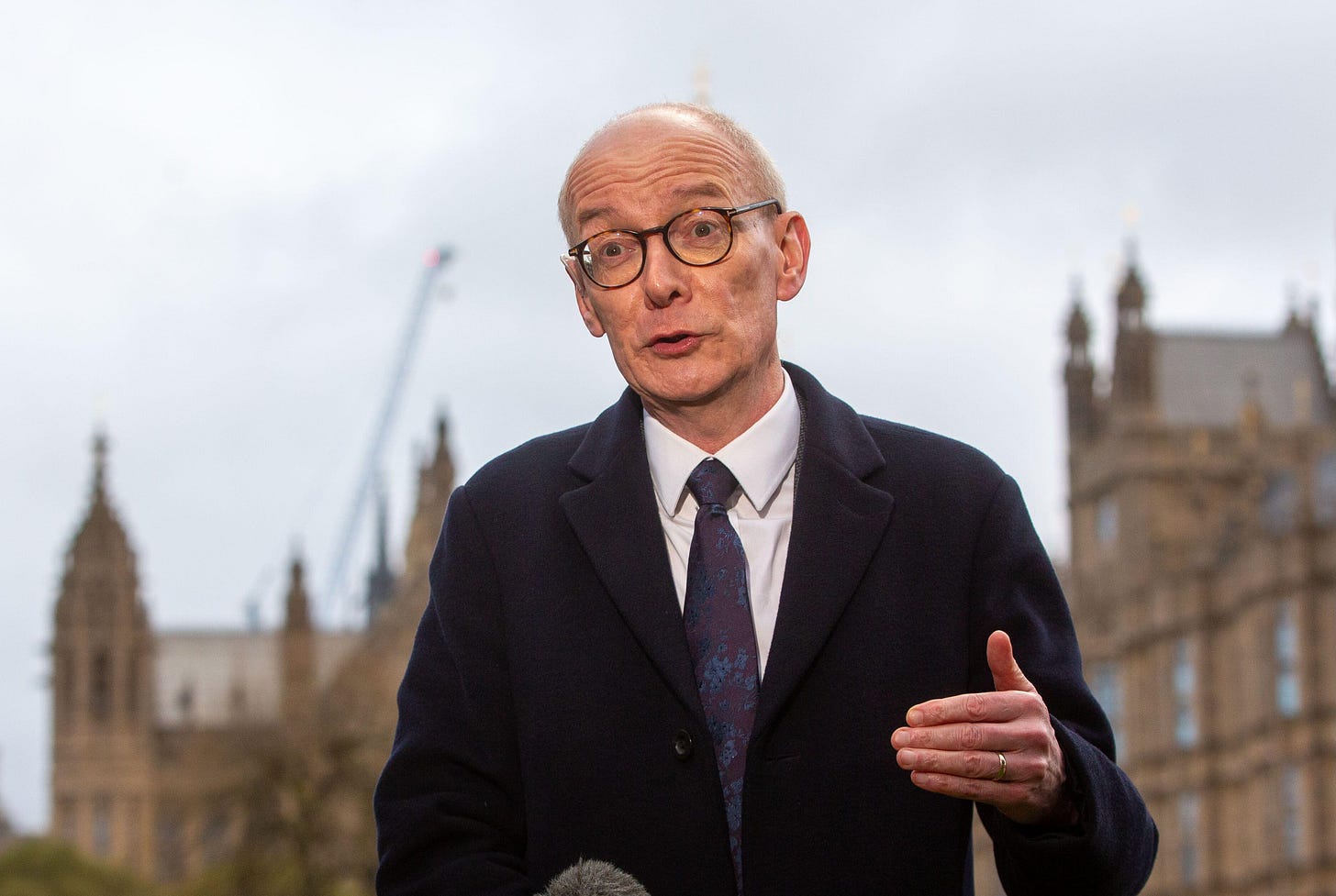
Exactly four months after Donald Trump stunned the world with his “Liberation Day” tariffs, the US President has reignited his global trade war, albeit with one striking difference this time round.
Global markets have slumped today after Trump imposed another set of sweeping tariffs on 69 countries, as his self-imposed deadline of August 1 for striking bilateral deals with trading partners passes.
Today’s sell-off has dragged European stock markets down to a five-week low while Asia-Pacific stock markets encountered their worst week since April. US stocks fell sharply too, with the S&P 500 index down 1.2 per cent, and, in the UK, the FTSE 100 dropped by over 0.5 per cent.
In this latest round of world trade war, Brazil – which initially got off relatively lightly with a 10 per cent US tariff – has been hit the hardest. Despite enjoying a sizeable trade surplus with Brazil, Trump has raised tariffs on Latin America’s largest economy to 50 per cent.
Nor has Trump’s newfound admiration for Syria’s strongman leader shielded Damascus from a steep 41 per cent tariff. And there was shock in Switzerland which has been lumbered with a 39 per cent levy.
The US President has also hiked import taxes on Canadian goods from 25 to 35 per cent and imposed chunky tariffs on South Africa and India of 30 and 25 per cent respectively.
The ambitious target set by White House trade advisor Peter Navarro of “90 deals in 90 days” was optimistic, to say the least. We have ended up with eight deals – many of which remain scant on details – in 120 days. We can expect bilateral negotiations to continue. Trump also already extended the deadline for a tariff agreement with Mexico by another 90 days.
All of which means that the August 1 deadline Trump was so keen to portray as a make-or-break cut-off point feels somewhat anticlimactic. This is unlikely to be the final word.
Perhaps the most striking difference with April’s “Liberation Day”, however, is that Trump is no longer simply using tariff threats to pile pressure on other countries to re-write their trade policies. His tariff war is also becoming a means to bully other countries into altering their political agendas.
After Canada announced its intention to follow the UK in taking steps to recognise the state of Palestine, Trump took to social media to warn that such a move from Ottawa would “make it very hard for us to make a Trade Deal with them.”
Similarly, Trump has cited the “witch hunt” against his hard-right ally Jair Bolsonaro as the main justification for his punishing tariff rate against Brazil.
The former Brazilian president faces decades in jail for allegedly plotting a military coup to stop current President Lula da Silva from taking office after losing the 2022 presidential election.
This elaborate Brazilian plot – which allegedly even included a plan to poison Lula and shoot dead Supreme Court justice Alexandre de Moraes – makes the Capitol Hill insurrection appear tame in comparison. Yet Trump has been quick to liken the “disgraceful” prosecution of Bolsonaro to the “witch hunt” he himself endured after his own unsuccessful attempt to overturn the result of the 2020 US presidential election.
While Lula has indicated that he is willing to negotiate economic issues with Washington, he has been clear that there is no room for negotiation when it comes to upholding the right of Brazil’s judiciary to carry out a lawful prosecution. “Brazil has a constitution, and the former president is being tried with a full right to a defense,” insisted the left-winger.
The notion that America would use its economic prowess to bend other countries to its will is hardly a novel one. However, there is a key difference between Trump’s tariff threats and other US attempts to pile pressure on countries through sanctions or the withdrawal of aid: Trump’s trade war threatens to punish America’s own population more than any of the countries being targeted.
There is no shortage of economists warning that it is US consumers, above all else, who will foot the bill for Trump’s sweeping set of tariffs.
Caitlin Allen
Deputy Editor
Tim Marshall
Starmer’s move to recognise Palestine overshadowed a more consequential Arab League announcement

READ HERE
Jenny Hjul
Civil service will be poorer under Labour’s social engineering ploy

READ HERE
Neil Collins
Shell has learnt from its painful episode

READ HERE
Gerald Malone
Dido and Aeneas: Graham takes the Purcell favourite for an extended work-out

READ HERE
Men arrested over child sex abuse in Bradford – Ten men have been arrested in Bradford on suspicion of alleged child sex offences occurring between 1994 and 1997. The men, aged between 49 and 71, have been interview and bailed pending further enquiries. The six victims were aged between 13 and 15 at the time.
Millions of Brits denied car finance compensation payouts – The UK Supreme Court has sided with finance companies over car buyers, ruling today that lenders won’t have to pay compensation to millions of motorists over car finance loans, in a case focussed on whether or not the dealers had a duty to act in the interests of the buyers when selling a car on finance.
Syria to investigate Sweida violence – The Syrian government has formed a committee of lawyers, judges and a military official to investigate recent clashes in the city of Sweida between tribal fighters and the Druze, which began in mid-July and resulted in hundreds of killings. It was the second major outbreak of violence since the fall of the Bashar al-Assad regime, the first being in March when Alawite civilians were killed by forces aligned with the Syrian caretaker government.
El-Salvador abolishes term limits – El Salvador’s legislature has voted in favour of a proposal for constitutional reform which will scrap presidential term limits. The duration of presidential terms has been extended and the next election has also been delayed. President Nayib Bukele, who has been in power since 2019, may now potentially be able to rule for life. Concerns have also been raised about his human rights record, and that his heavy crackdown on crime has resulted in arbitrary arrests and an estimated 75,000 arrested under emergency measures.
-
Russia’s war is also cognitive: to achieve more, Putin needs others to do less, says Nataliya Bugayova in Foreign Policy.
-
Duncan Weldon on how liberal capitalist economies adapt to total war, on the Engelsberg Ideas podcast.
-
DAT Green in Prospect: Why two recent judgements of Lord Leggat matter.
-
Rachel Reeves has crushed confidence in Britain, says Matthew Lynn in The Spectator.
-
The upstart company that wants to build the world’s largest aircraft. Mark Piesing in BBC Future.
